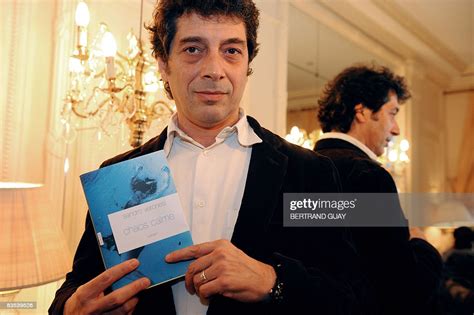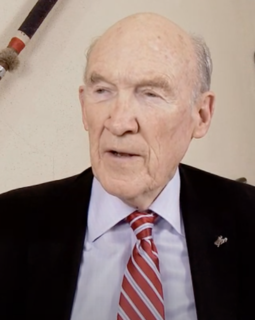A Quote by James Madison
The people can never willfully betray their own interests: But they may possibly be betrayed by the representatives of the people; and the danger will be evidently greater where the whole legislative trust is lodged in the hands of one body of men, than where the concurrence of separate and dissimilar bodies is required in every public act.
Related Quotes
[E]very act of a delegated authority, contrary to the tenor of the commission under which it is exercised, is void. No legislative act, therefore, contrary to the Constitution, can be valid. To deny this, would be to affirm, that the deputy is greater than his principal; that the servant is above his master; that the representatives of the people are superior to the people themselves; that men acting by virtue of powers, may do not only what their powers do not authorize, but what they forbid.
Members of legislative bodies are selected by political parties, largely financed or otherwise influenced by private capitalists who, for all practical purposes, separate the electorate from the legislature. The consequence is that the representatives of the people do not in fact sufficiently protect the interests of the underprivileged sections of the population.
No society can surely be flourishing and happy, of which the far greater part of the members are poor and miserable. It is but equity, besides, that they who feed, clothe and lodge the whole body of the people, should have such a share of the produce of their own labour as to be themselves tolerably well fed, clothed and lodged.
The vested interests-if we explain the situation by their influence-can only get the public to act as they wish by manipulating public opinion, by playing either upon the public's indifference, confusions, prejudices, pugnacities or fears. And the only way in which the power of the interests can be undermined and their maneuvers defeated is by bringing home to the public the danger of its indifference, the absurdity of its prejudices, or the hollowness of its fears; by showing that it is indifferent to danger where real danger exists; frightened by dangers which are nonexistent.
America's abundance was created not by public sacrifices to the common good, but by the productive genius of free men who pursued their own personal interests and the making of their own private fortunes. They did not starve the people to pay for America's industrialization. They gave the people better jobs, higher wages, and cheaper goods with every new machine they invented, with every scientific discovery or technological advance- and thus the whole country was moving forward and profiting, not suffering, every step of the way.
We are living in a world of fear. The life of man today is corroded and made bitter by fear. Fear of the future, fear of the hydrogen bomb, fear of ideologies. Perhaps this fear is a greater danger than the danger itself, because it is fear which drives men to act foolishly, to act thoughtlessly, to act dangerously...
The republican principle demands that the deliberate sense of the community should govern the conduct of those to whom they intrust the management of their affairs; but it does not require an unqualified complaisance to every sudden breeze of passion or to every transient impulse which the people may receive from the arts of men, who flatter their prejudices to betray their interests.
Whensoever, therefore, the legislative shall transgress this fundamental rule of society, and either by ambition, fear, folly, or corruption, endeavour to grasp themselves, or put into the hands of any other, an absolute power over the lives, liberties, and estates of the people, by this breach of trust they forfeit the power the people had put into the hands... and it devolves to the people, who have a right to resume their original liberty, and... provide for their own safety and security.
I'll never, never understand why people think it's their business to comment on other people's bodies. I go to a spa in LA sometimes, a Korean day spa, and all the women there are nude. And I've never felt so in love with the human form as when I'm walking around and seeing all those bodies, thinking, Oh my god, we're all just built so differently. And every single body is beautiful. I will never understand that shame, and the reinforcement of that shame. It's crazy.































